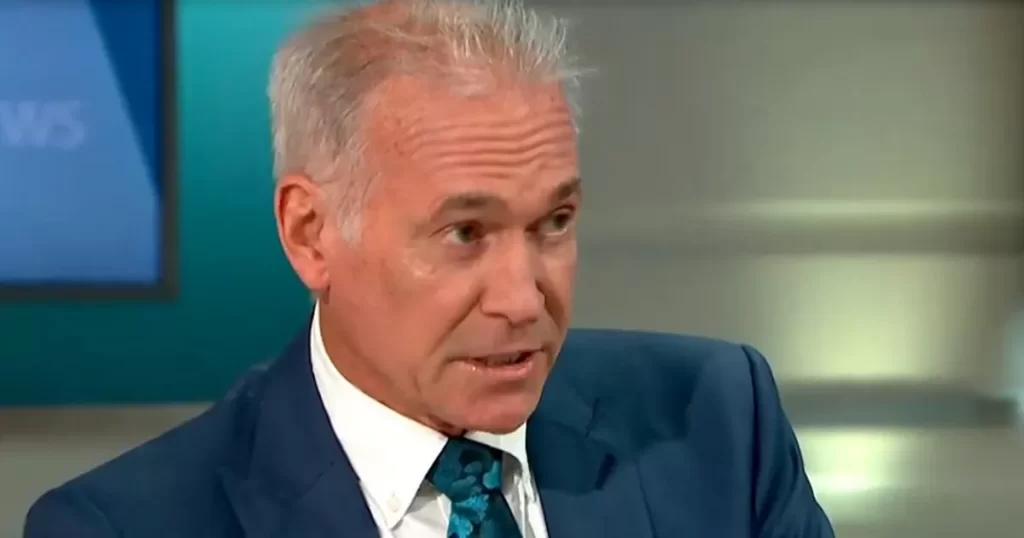Appearing on Good Morning Britain, Dr Hilary Jones spoke about a new wonder drug to help people diagnosed with dementia (Image: ITV)Get daily celeb exclusives and behind the scenes house tours direct to your inboxMore Newsletters SubscribePlease enter a valid emailSomething went wrong, please try again later.More NewslettersWe use your sign-up to provide content in ways you’ve consented to and improve our understanding of you. This may include adverts from us and third parties based on our knowledge of you. More infoThank you for subscribing!We have more newslettersShow me See OurPrivacy Notice See OurPrivacy Notice×Group 28 Get daily celeb exclusives and behind the scenes house tours direct to your inboxInvalid emailSomething went wrong, please try again later.Sign UpNo thanks, closeWe use your sign-up to provide content in ways you’ve consented to and improve our understanding of you. This may include adverts from us and third parties based on our knowledge of you. More info×Group 28Thank you for subscribing!We have more newslettersShow MeNo thanks, closeSee our
Privacy Notice A TV medic has shed light on a new miracle drug that could significantly slow down the onset of dementia. Dr Hilary Jones, speaking on Good Morning Britain, revealed that Lecanemab is on the verge of being approved by the Medicines and Healthcare products Regulatory Agency (MHRA). Dr Hilary described dementia as the disease ‘most feared’ by all, informing ITV viewers that it could delay the condition by over a quarter – a significant breakthrough for those diagnosed. He stated: “A drug that slows progression of the disease, uh, by 27% sounds very exciting indeed. According to the Alzheimer’s Society, we’re talking about nearly a million people currently living with dementia 182,000, to be exact and by delaying the onset of dementia in people by this amount, it would save the British economy by about 14 billion pounds every year. So it is exciting.” Lecanemab is already licensed in the US, where it costs approximately £20,000 per patient annually. However, it was turned down by the European Medicines Agency (EMA) in late July.
Read More
Related Articles
This Morning stars say ‘we’ve blown it’ as she gags and says ‘I can’t do this’
The EMA argued that the benefits of lecanemab did not outweigh the risk of patients experiencing severe side-effects such as bleeding and swelling in the brain. It also claimed that the drug’s effects on delaying cognitive decline were minimal. NHS England predicts that between 50,000 and 280,000 patients might qualify for the new treatments. Before receiving the drugs, they will need to undergo a baseline MRI scan and then either a Pet-CT scan or lumbar puncture to confirm Alzheimer’s. Dr Jones stated: “I think dementia is perhaps the disease most people fear, and it is the leading killer in the UK overall. The drug is a monoclonal antibody, and it works by binding to a protein that entangles nerve cells in the brain.” “So it’s the first drug of its kind that deals with the underlying issue rather than just modifying the symptoms. So that’s exciting in itself. And it’s given by an intravenous infusion every couple of weeks.”
Read More
Related Articles
Charlotte Hawkins forced to end GMB debate as guests clash in row over breast milk
Shortly afterwards patients had a blow when the NHS said it would not fund the treatment – and people would have to instead go privately. The NHS spending watchdog has recommended that a drug shown to slow the progression of Alzheimer’s disease should not be rolled out on the health service, despite the UK medicines regulator saying it is safe and effective for use. The National Institute for Health and Care Excellence (Nice) said the benefits of lecanemab are “just too small to justify the significant cost to the NHS”.Story SavedYou can find this story in My Bookmarks.Or by navigating to the user icon in the top right.Follow OK! MagazineFacebookTwitterMore OnGood Morning Britain












